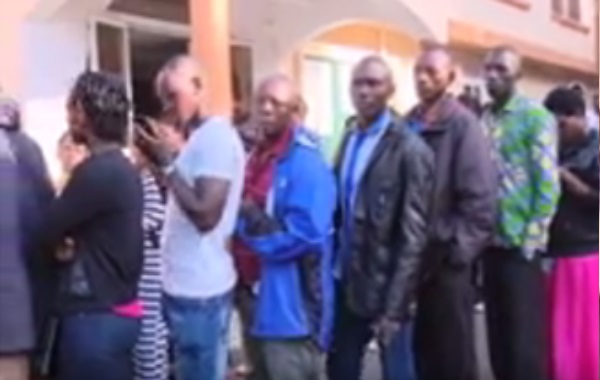By 7 am, the lines at the Rwanda High Commission were starting to stretch as voters were eager to cast their ballot, they were even longer outside the Commission’s gate. Rwandans in the diaspora had begun to cast their ballot in the Presidential election many believe the incumbent Paul Kagame would win by a landslide. Kagame was facing two-run-off the mill political rivals.
The election for citizens living in Rwanda will happen tomorrow. What was visible were the many young faces who queued to vote. Many of them born during and immediately after Rwanda’s darkest period in its history where over 80,000 were killed in an ethnically driven program. Two million Rwandans fled their country to escape the genocide.
From this illuminating light, the doors of the Rwanda High Commission emerged Steven Murigo whose parents fled two months before he was born and now a pastor. “I was born in Uganda, in Masaka district which is Kalungu now district. I was brought up in Uganda as I told you I was born here due to the history of Rwanda because our parents were refugees in Uganda for bad politics.”
Justine Tabwebwa a model who grew up and studied in Uganda also waited to cast her ballot. This too was the first time she was eligible to vote. “Rwanda is a secure country, very clean, it has the future; good future every day that’s why I have to vote.” “And everyone is celebrating the achievements that Rwandans have gone through in very difficult times. But I think Rwandans have now reached a point where they see; yes we have grown up, let’s make our choices, let’s do what is best for us, and let’s build the future that is good for us and the generations to come.”
The Deputy Head of the Rwandan Community in Uganda said that many of the first-time voters would anchor their vote on this bright prospect. “Their voting action, they are voting their future according to the past.” The High Commission expected at least 7,000 people to turn up to vote and the majority of whom would be first-time voters.

